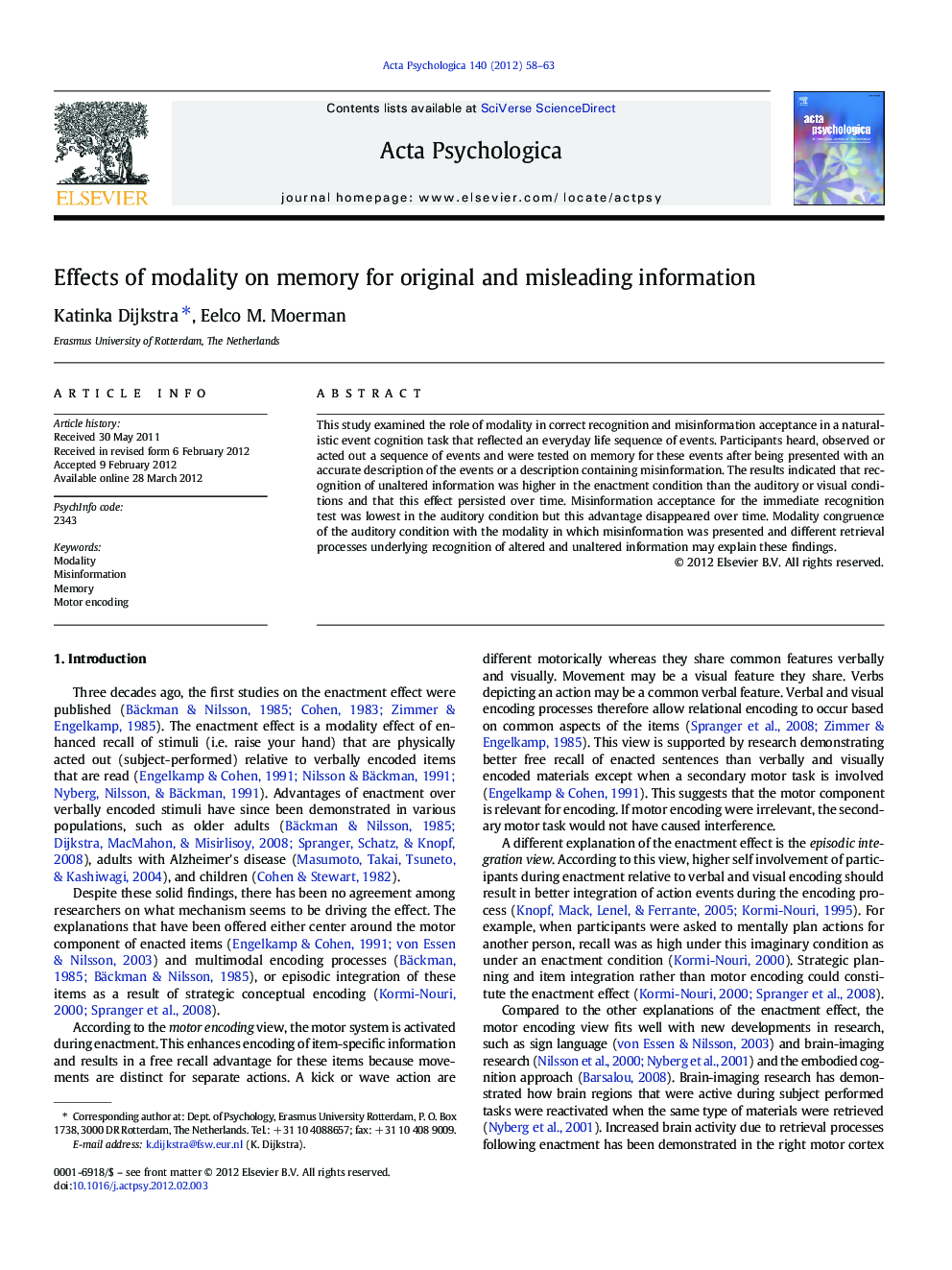| Article ID | Journal | Published Year | Pages | File Type |
|---|---|---|---|---|
| 919973 | Acta Psychologica | 2012 | 6 Pages |
This study examined the role of modality in correct recognition and misinformation acceptance in a naturalistic event cognition task that reflected an everyday life sequence of events. Participants heard, observed or acted out a sequence of events and were tested on memory for these events after being presented with an accurate description of the events or a description containing misinformation. The results indicated that recognition of unaltered information was higher in the enactment condition than the auditory or visual conditions and that this effect persisted over time. Misinformation acceptance for the immediate recognition test was lowest in the auditory condition but this advantage disappeared over time. Modality congruence of the auditory condition with the modality in which misinformation was presented and different retrieval processes underlying recognition of altered and unaltered information may explain these findings.
► There is an advantage of enactment over auditory and visual encoding in recognition. ► Misinformation acceptance was lower in the auditory condition in immediate recall. ► Misinformation acceptance increased over time in the auditory condition. ► There was no decline in recall for the enactment condition.
